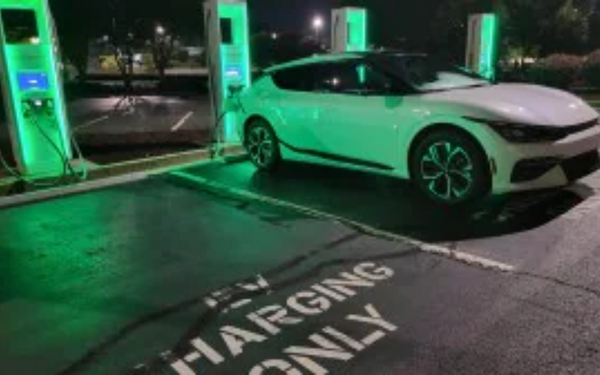There are more attempts being made to provide wireless on-road charging solutions as we get closer to a future where EVs predominate.
The renowned Autobahn in Germany will now have its own wireless charging station, however it won’t be accessible to individual EV vehicles. Instead, it will run a public bus that will carry people to Balingen.
Israeli wireless charging startup Electreon will provide the technology, and German EV infrastructure provider EnBW will work with them to implement the project.
Along a section of the Autobahn, Electreon will instal 1 km of Electric Road System (ERS), which will provide dynamic wireless charging while the bus is in motion. Additionally, two static charging stations will be set up at bus stops along the route.
Two stages make up the project: the first involves the installation of a 400-meter path with two static charging stations. Second, an additional 600 metres of the electrified road.
Notably, this project comes after the two businesses’ successful testing in Karlsruhe, Germany. At the EnBW training facility, an electric road was erected, which during peak hours powers a nearby public bus.
“We have previously shown the efficiency, safety, and ease of deployment of wireless dynamic charging in our joint Karlsruhe project with EnBW. According to the news release, Dr. Andreas Wendt, CEO of Electreon Germany, “We hope this is the beginning of many such projects on public and private roads in Germany.”
The Israeli business has also managed wireless on-road charging initiatives in Sweden and Italy.
However, just a few European firms are working in the industry, despite Electreon and numerous US-based companies testing the technology. These include the Swedish Elonroad, the German Magment, and the Italian Enermove.
In order to get rid of range anxiety and the annoyance of lengthy station charging periods, wireless on-road charging may be crucial. In turn, this will make the switch to electric cars easier.
The drawback is that it requires a significant transformation (and investment) in infrastructure, which, by the time it is implemented, may be rendered obsolete by developments in traditional charging stations. Maybe the European business is waiting to see what happens before spending all that money.

Subtly charming pop culture geek. Amateur analyst. Freelance tv buff. Coffee lover
